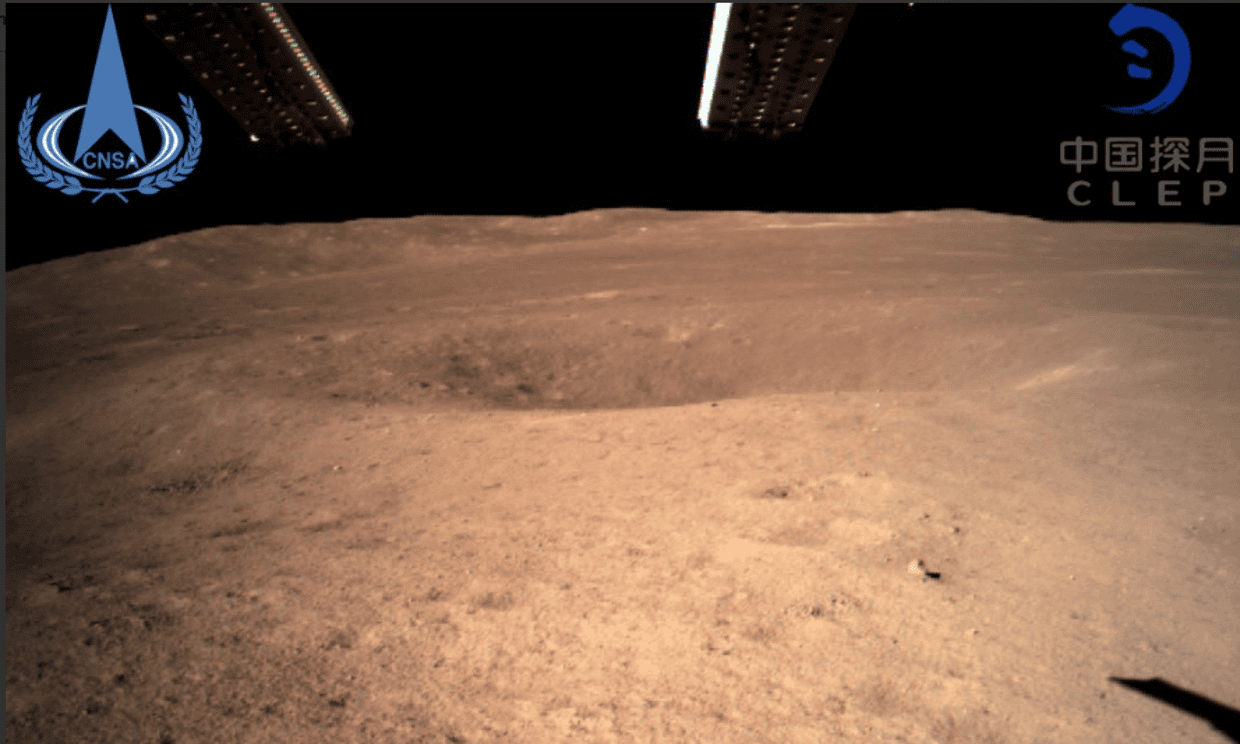
In order to find this report, we had to wade through a whole bunch erroneously stating that China had landed a probe on the “dark side of the Moon”. The Moon hasn’t got a dark side, regardless of what Pink Floyd sing! Martin
Lander sends back first close-up shot of previously unexplored side of the moon
Thu 3 Jan 2019

Screenshot of an image take by China’s Chang’e 4 lunar explorer after it landed on the far side of the moon. Photograph: CNSA
A Chinese spacecraft has become the first ever to land on the far side of the moon, according to state-run media, in a giant leap for human space exploration.
The China National Space Administration (CNSA) landed the robotic probe Chang’e 4 in the unexplored South Pole-Aitken basin, the largest, oldest, deepest, crater on the moon’s surface.
Early reports of a successful landing sparked confusion after state-run media China Daily and CGTN deleted tweets celebrating the mission. China Daily’s tweet said: ‘“China’s Chang’e 4 landed on the moon’s far side, inaugurating a new chapter in mankind’s lunar exploration history.”
Official confirmation of the landing came two hours later via state broadcaster CCTV, which said the lunar explorer had touched down at 10.26am (2.26am GMT). The Communist party-owned Global Times also said the probe had “successfully made the first-ever soft landing” on the far side of the moon.
An image tweeted by the English-language version of CCTV showed the first close-up shot of the far lunar surface.
The mission aims to take detailed measurements of the moon’s terrain and mineral composition. The Aitken basin is thought to have been formed during a gigantic collision very early in the moon’s history. The collision is likely to have thrown up material from the moon’s interior, meaning that Chang’e 4 could provide new clues as to how the natural satellite was formed.
The successful landing was touted as a “huge feather in China’s cap” by Malcolm Davis, senior analyst in defence strategy and capability at the Australian Strategic Policy Institute.
“There’s a lot of geopolitics or astropolitics about this, it’s not just a scientific mission, this is all about China’s rise as a superpower,” said Davis. “There’s a lot of enthusiasm for the space program in China. There’s a lot of nationalism in China, they see China’s role in space as a key part of their rise.”..READ MORE

And don’t forget, kids, the Moon is rich in He3, essential for sustained Nuclear Fusion. And who’s leading the way in Fusion?
Put two and two together:








